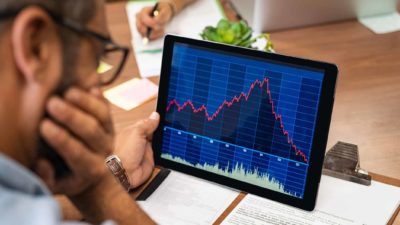During March, the ASX managed to record its worst session since the global financial crisis (GFC), the S&P/ASX 200 Index (ASX: XJO) recorded its biggest falls in 20 years, and the All Ordinaries (ASX: XAO) managed to record its biggest fall since the 1987 crash.
Adding to the volatility, March also saw the ASX experience its biggest one-day gain on record. At one point, the VIX volatility index – a popular yardstick for the stock market's expectations of volatility – reached a level not seen in 30 years.
ASIC's equity market resiliency measures
In response, ASIC released a statement noting that Australian equity markets saw "record trading volumes."
ASIC pointed out that Australia's equity markets "have seen exponential increases in the number of trades executed." While no market disruptions were recorded, "there was a significant backlog of work required to be undertaken."
ASIC indicated that if the number of trades continues to rise, it will "put a strain on the processing and risk management capabilities of market infrastructure and market participants."
Importantly, ASIC revealed that it has issued directions under its ASIC Market Integrity Rules to a number of large equity market participants, requiring those participants to limit the number of trades executed each day until further notice.
As a result, ASIC commented it expects high volume participants and their clients to actively manage their volume. ASIC does not believe this directive will impact the ability of retail consumers to execute trades.
ASIC stated that along with the Council of Financial Regulators agencies, it will continue to monitor financial markets to "ensure they remain fair and orderly".
To do this, ASIC has suspended a suite of its near-term activities which are not time-critical to afford priority to such things like consumer harm, serious breaches of the law, and of course risks to market integrity.
ASX supports ASIC's steps to ensure equity market resiliency
In a March statement, ASX Managing Director and CEO Dominic Stevens said ASIC's steps were "sensible and measured." Stevens echoed ASIC in noting that "recent trading volumes on both ASX and Chi-X have been unprecedented", presenting "operational challenges for the industry."
According to ASX's Monthly Activity Report for March 2020, the average daily number of trades was 96% higher than the previous corresponding period.
Stevens stated that ASX shares ASIC's determination to maintain confidence in the integrity of Australia's financial markets and will continue to collaborate with industry.
ASX 'cannot provide unlimited capacity at short notice'
Very importantly, Stevens acknowledged that ASIC's measures are "only the first step." In his view, "more consideration needs to be given to a permanent solution."
In a significant admission, Stevens pointed out that the "industry cannot provide unlimited capacity at short notice."
Stevens stressed that regulators, exchanges, and investors alike need to decide "what they want for the future."
But what does the future hold? Can the March madness metastasise to April and upcoming months?
ASX 200: is stock volatility over?
The Commonwealth Bank of Australia (ASX: CBA) Global Economic & Economic Markets Research team analysed CBA's credit and debit card spending data, finding that "spending fell over the week ending 27 March 2020 compared with a year earlier."
According to CBA's research team analysis, household spending falls "may be significantly larger than the rises and so overall household expenditure may contract materially."
This is important, as household spending is a significant contributor to GDP and economic growth. According to the Reserve Bank of Australia (RBA) household spending "accounts for more than half of GDP" and "almost always makes a large contribution to GDP growth."
The dynamic nature of the global response to the coronavirus and its impact on household spending saw analysts revising their estimates of global GDP growth for the first half of 2020 on a near-daily basis, according to Standard & Poor's.
So what does a fall in household spending and a contracting economy mean for equities?
Continued gloomy economic revisions may keep the stock markets volatile. For instance, the VIX Index is down from its mid-March peak but still 256% higher than at the start of the year.
Morgan Stanley analysts recently told the Australian Financial Review that "we think economic disruptions will intensify and stocks could see further lows in the shorter term."








